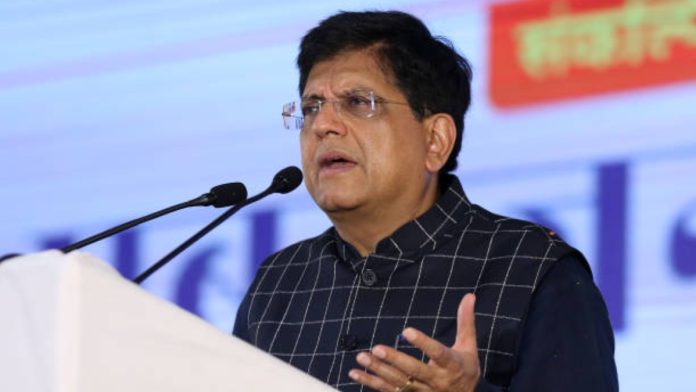Brussels’ insistence on preferential market access to India’s fast-growing, $132 billion dairy sector could jeopradise progress on its proposed free trade agreement (FTA) with India, commerce and industry minister Piyush Goyal said on Friday.
Stating that India had sensitivities about the sector, which provides livelihood to millions of people, the minister said: “I just can’t open up dairy (sector), if the EU insists on it, then there (will be) no FTA.”
The minister added that if a trade deal could be concluded swiftly, only if sensitivities of each are respected by both sides.
He was speaking at the 18th Asia Pacific Conference of German Business (APK) here, which was attended by visiting German Chancellor Olaf Scholz. The German leader had said earlier at the function that if both sides work together, the India-EU FTA could be sealed “in months rather than years.” “My government is pursuing swift progress and rapid conclusions (of the FTA terms) ,” he said.
India dairy market was valued at $131.5 billion Billion in 2024, and is seen to reach $291 billion by 2033, at a CAGR of a little over 8%..
India’s sensitivities stem from the vast difference with the per capita incomes and development levels between the countries of the 27-member economic bloc. Dairy sector is one such area where India has reduced market access in the FTAs negotiated in the past too.
In the Australia-India Economic Cooperation and Trade Agreement (ECTA) signed in 2022, FTA signed with four-nation European Free Trade Association in March this year and the Comprehensive Economic Cooperation Agreement (CEPA) the dairy sector was kept out. Australia and ECTA’s trade agreements with India are the only ones that they have signed which does not include trade on concessional terms in the dairy sector, Goyal said at the 18th Asia Pacific Conference of German Business (APK) here.
Despite India being the largest producer of milk since 1998, the dairy is a sensitive sector as much of it depends on small farmers owning a few milch animals and cannot compete with big dairy companies who source milk from farmers with an average herd size of 8,000 to 10,000 animals.
Also ReadITC posts resilient Q2 results despite challenges; brokerage firms bet on Cigarettes, FMCG biz, says growth outlook remains strong
To protect its daily industry India imposes import duties of up to 68% and over that there are strict compliance requirements which effectively make these imports unviable.
» Read More


